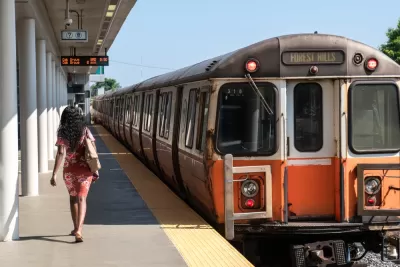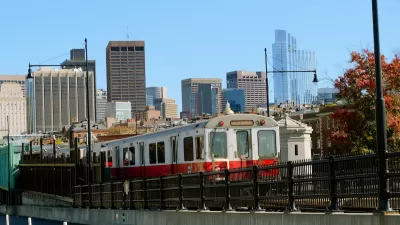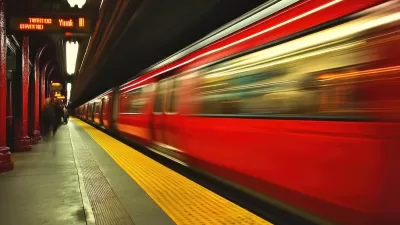Cities, residents, and developers have a renewed interest in building more housing near transit stations—when they actually provide safe, reliable transit.

An article by Yvonne Abraham in the Boston Globe questions whether the beleaguered Massachusetts Bay Transportation Authority (MBTA) can fix the region’s transit system before developers and residents lose interest in transit-oriented development (TOD), which ostensibly puts people closer to reliable transportation, jobs, and urban amenities, even as developers around the country embrace TOD (often nudged by government incentives to do so).
“In the 1920s, 91 percent of apartment and condo development in Greater Boston took place within a 10-minute walk of a subway, streetcar, or commuter rail stop, according to data from real estate and transportation consulting firm Respoke LLC.” After falling to 16 percent at the height of autocentric development, today, close to 60 percent of multifamily development in the Boston area is now within a 10-minute walk of transit. But do the MBTA’s consistent service disruptions and shutdowns threaten to devalue transit-oriented development?
Not likely, the article concludes. Abraham points out that much of Boston’s growing economy relies on life sciences and other industries dependent on in-person work. Housing and transit advocates are hopeful that the long-delayed repairs will make the T more effective and safe, and developers continue to invest in properties near transit stations. “It may be annoying today, but the Orange Line shutdown might make Boston a better place to live after decades of neglected repair.” But if that doesn't happen quickly, more residents will be forced back into personal vehicles.
FULL STORY: Could it be the end of the line for transit-based development?

Planetizen Federal Action Tracker
A weekly monitor of how Trump’s orders and actions are impacting planners and planning in America.

Maui's Vacation Rental Debate Turns Ugly
Verbal attacks, misinformation campaigns and fistfights plague a high-stakes debate to convert thousands of vacation rentals into long-term housing.

San Francisco Suspends Traffic Calming Amidst Record Deaths
Citing “a challenging fiscal landscape,” the city will cease the program on the heels of 42 traffic deaths, including 24 pedestrians.

Trump Prompts Restructuring of Transportation Research Board in “Unprecedented Overreach”
The TRB has eliminated more than half of its committees including those focused on climate, equity, and cities.

Amtrak Rolls Out New Orleans to Alabama “Mardi Gras” Train
The new service will operate morning and evening departures between Mobile and New Orleans.

The Subversive Car-Free Guide to Trump's Great American Road Trip
Car-free ways to access Chicagoland’s best tourist attractions.
Urban Design for Planners 1: Software Tools
This six-course series explores essential urban design concepts using open source software and equips planners with the tools they need to participate fully in the urban design process.
Planning for Universal Design
Learn the tools for implementing Universal Design in planning regulations.
Heyer Gruel & Associates PA
JM Goldson LLC
Custer County Colorado
City of Camden Redevelopment Agency
City of Astoria
Transportation Research & Education Center (TREC) at Portland State University
Jefferson Parish Government
Camden Redevelopment Agency
City of Claremont





























